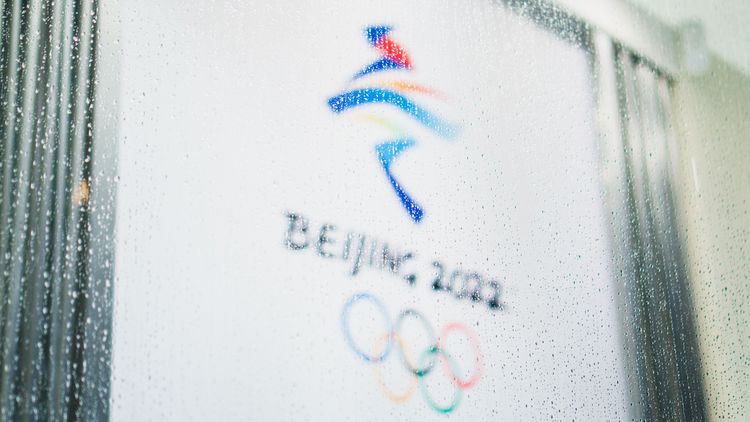Major sporting events such as the Olympic Games are increasingly criticised. An interview with sports sociologist Thomas Alkemeyer about whether such competitions are still in keeping with the times.
Prof. Alkemeyer, what is it that fascinates people so much about sporting competitions such as the Olympic Games?
Sport offers great competitions and touching moments. Moments in which you can rejoice that someone you wouldn't have expected actually wins - or shows greatness in defeat. The Olympics also bring into the limelight many a curious but entertaining sport that would otherwise only make it into a regional newspaper. Sport opens people up emotionally, which in turn also makes it so attractive for business. Nevertheless, there is growing scepticism about the big, commercial sporting events. There is all too much wrong with them.
What do think of the current Winter Games?
These Olympics are taking place under conditions that are alienating in many ways. On the one hand, there is the pandemic; on the other hand, the Games provide glamorous images behind which the violation of human rights is supposed to be made invisible. And contrary to what is claimed, this event is not very sustainable either. This spoils my enjoyment of the sporting competitions.
Are the Olympic Games in crisis?
Yes, the popularity of the Olympic Games seems to be waning. Not only in Germany do only very few cities want to host the Games, as polls of the population have shown. There are various reasons for that, for example the enormous costs. Even the bidding process costs in the two- to three-digit millions, and security costs are growing enormously. Then there are the costs for the infrastructure, the biggest item, and the organisational costs during the staging of the Games. This sums up to the double-digit billions. And many citizens think: Is it worth it? What happens to the sports facilities after the Games? What do we get out of it? According to the calculations of economists, such large sporting events are generally not profitable.
What other reasons are there?
A growing number of people are becoming less and less tolerant of the enormous interference with nature that the Winter Olympics in particular require. In addition, they increasingly reject grandiose sports officials and sports organisations. The International Olympic Committee (IOC) in particular is showing itself to be an autocratic organisation that has repeatedly been affected by corruption scandals.
Are major sporting events like the Olympic Games still in keeping with the times?
Olympic high-performance sport has also fallen into crisis because of its gigantism. It embodies particularly clearly and vividly the modern age's imperative for progress and growth: Citius, altius, fortius - faster, higher, stronger. Although so-called modern societies continue to be guided by the principle of progress, this principle is losing credibility and influence. A growing number of people recognise the destructive consequences of unlimited growth. In high-performance sport, for example, these consequences can be seen in the manipulation and technological 'optimisation' of human nature through technoscience and doping. This raises the question of how contemporary the Olympic model of sport, as we have known it for more than a century, still is.
The original Olympic idea, that people from many nations meet and compete fairly, but also connect through sport, is actually something beautiful.
Sure, it can be very nice to do sport together, to meet and compete. Most athletes who took part rave about the Olympics, about meeting people from all over the world. Often completely independent of how successful they were. But Olympic sport also differentiates and separates - not only by ability and performance, but also by national affiliation. The mass media, in particular, still treat the competitions as a contest of national representatives: The medal table is supposed to document the sporting performance of nations. In the Federal Republic of Germany, the Ministry of the Interior promotes competitive sport with taxpayers' money - highly selectively on the basis of the medal potential of the various sports disciplines. Sports 'without potential' are in danger of being left empty-handed. On this point, too, one has to ask: How contemporary are such national representations in a world that would have to detach itself from national priorities in order to meet global challenges?
Do you see other possibilities?
One could do without national symbolism at global sporting events. The question then is: who finances this sport, especially in those sports that have little publicity and are hardly noticed outside the Olympics? Moreover, the Olympic Games could be smaller and more modest if their organisational structures were fundamentally reformed. Only then would they be fit for the future.
Do you see efforts in this direction?
Certainly, but not from the IOC, which, apart from political interests, primarily pursues economic interests. The IOC earns billions from the allocation of broadcasting rights. It also wants to open up new sports markets. China is an excellent example of this. The almost bizarre idea is presented that the Chinese population will be more enthusiastic about winter sports through the Olympic Games and that they will be able to sell the corresponding sports equipment to men and women. And this in regions where it rarely snows, just imagine!
How could a change in thinking be achieved?
The greatest pressure is unleashed when audience interest declines and ratings drop. That would be a threatening scenario for the IOC. Tendencies in this direction can indeed be observed.
Will you perhaps watch the next Summer Games?
Maybe I'll watch the one or other event, but probably only sporadically. The great fascination is gone and will not return so quickly.
Interview: Ute Kehse



